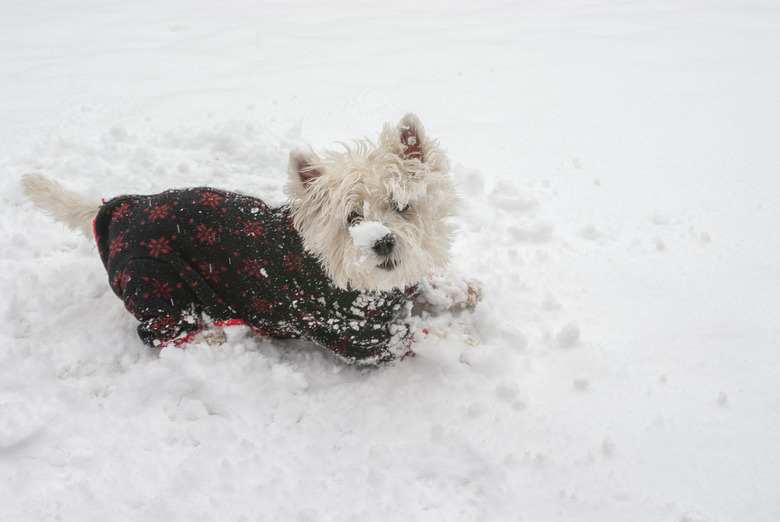How Cold Is Too Cold For A Dog To Go Outside?
When low temperatures arrive, it's time to think about winter pet safety. How cold is too cold for a dog to go outside? While the thermometer can provide you with some definitive answers, it depends largely on the dog.
Snowdogs such as huskies are selectively bred to work in the snow and have a much higher tolerance. Smaller, hairless breeds like the sleek Xoloitzcuintli, a breed of Aztec origin from a primarily warm climate.
Most dogs (at least in their younger years) need walks or outdoor playtime. They need to express their playful energy and avoid destructive behavior in the home. It's important to understand how dogs' bodies work and how they vary when it comes to enduring cold weather temperatures and snow — regardless of location.
General body temperature of dogs
General body temperature of dogs
Dogs run a bit hotter than people do. Dogs (and cats) range from 101.0 to 102.5 degrees Fahrenheit. The danger zone for dogs is above 104 degrees or below 99 degrees. A dog will indicate they're cold in one or more ways:
- Shivering and trembling
- Lethargy and lack of baseline alertness
- Burrowing in blankets, laying near a heater or fire, and snuggling you or other pets more determinedly
If you're concerned about your dog's body temperature, measure it with a thermometer. If your dog will tolerate an ear temperature reading, you can try to take the temperature that way. Another method involves rectal temperature — which is another method your dog may or may not tolerate. If you're worried that your dog doesn't seem to warm up, and you can't take your dog's temperature — it's time to head to the veterinarian.
Signs of hypothermia in dogs
Signs of hypothermia in dogs
Despite popular belief, most dogs are not more cold-resistant than humans. Dogs have a higher body temperature and more effective insulation due to their fur.
However, they may have hypothermia if they display any of the following symptoms:
- paleness
- low blood pressure
- increased heart rate
- dilated pupils
- fast breathing (followed by slow and shallow breathing)
- loss of consciousness
If any of these conditions are present, your dog must be assessed by a veterinarian immediately.
What types of dogs are most at risk for problems due to cold temperatures?
What types of dogs are most at risk for problems due to cold temperatures?
Small, large, and senior dogs can all experience severe repercussions of overexposure to cold temperatures and wintry conditions. However, dogs with thinner coats and conditions such as hypothyroidism or other metabolic disorders may be especially sensitive to cold temperatures. Additionally, dogs with kidney disease, Cushing's disease, heart disease, and diabetes may be more susceptible to problems.
Preventing canine health problems due to cold weather
Preventing canine health problems due to cold weather
For your dog's comfort in addition to their physical and mental health you can do some simple things to ensure your dog's safety during cold temperatures.
- Learn about their breed to understand how they will perform in the snow
- Care for their paws and provide snow booties for your dog when there's snow on the ground or if the ground temperature is cold
- Dog sweaters and jackets aren't just cute fashion accessories — they help dogs stay warm on their walks!
- Avoid leaving your dog outside accidentally by using smart devices to set reminders to let them in after a short period of time
- Lessen or eliminate the amount of time your dog is outside
- Make sure they have a warm place to sleep in the winter (at a safe distance from the fireplace, or at the foot of your bed)
- Monitor them for discomfort and hypothermia symptoms
- Consult your veterinarian if you have additional questions or concerns
The bottom line
The bottom line
We like to think of dogs as more tolerant of colder climates than humans due to their fur coats and higher body temperatures. However, dogs are still rather susceptible to health-related problems and standard discomfort due to cold temperatures. Keep your dog safe, warm, comfortable, and indoors when possible. Monitor your dog for any symptoms of hypothermia and consult their veterinarian for any concerning symptoms.


